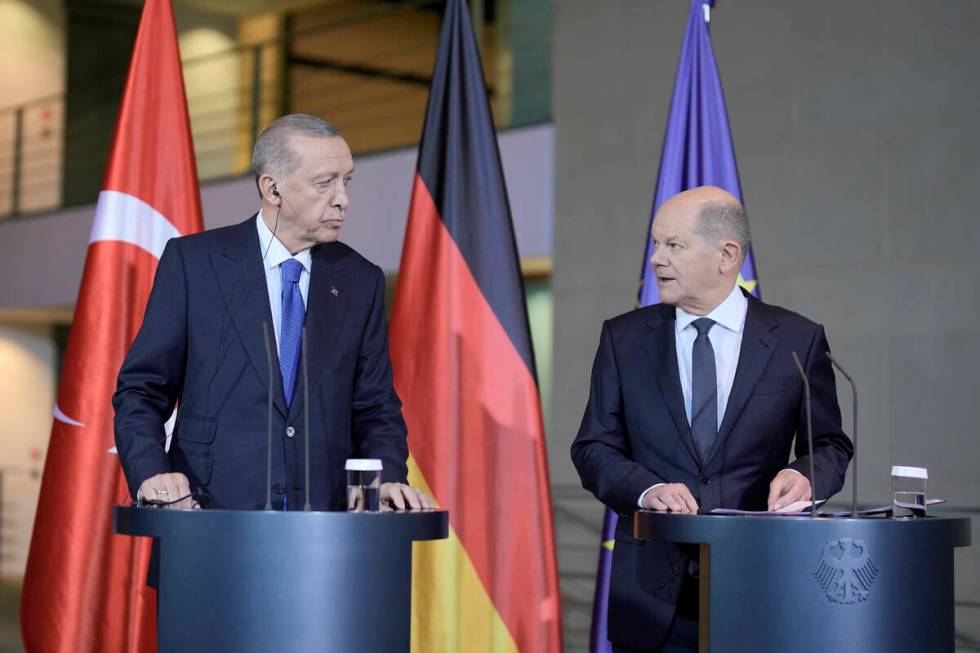Turkish, German leaders air deep differences on Israel-Hamas war

BERLIN — Turkish President Recep Tayyip Erdogan and German Chancellor Olaf Scholz on Friday aired deep differences over the war between Israel and Hamas as the Turkish leader made a brief and tensely anticipated visit to Berlin.
Erdogan was invited to visit Germany months ago after his re-election, but recent weeks have been marked by discomfort in Berlin over his increasingly strident stance against Israel.
Turkey has long been viewed as an awkward but essential partner in Germany, home to more than 3 million people with Turkish roots.
It’s a NATO ally that also is important in efforts to control the flow of refugees and migrants to Europe, an issue on which Scholz faces intense domestic pressure, but there have been frequent tensions in recent years.
Most recently, a chasm has opened between the countries’ stances on events following Hamas’ Oct. 7 attack on Israel.
Germany is a staunch ally of Israel and has opposed calls for a cease-fire, while pushing for aid to civilians in Gaza, advocating for “humanitarian pauses.”
Erdogan this week called Israel a “terrorist state” intent on destroying Gaza with all of its residents. He described Hamas terrorists as “resistance fighters” trying to protect their lands and people.
Hamas is considered a terrorist organization by Israel, the United States, Canada and European Union.
Those and similar comments have appalled politicians across the spectrum in Germany. Scholz has described Erdogan’s accusations against Israel as “absurd.”
“It’s no secret that we have, in parts, very different views on the current conflict,” Scholz said at a brief news conference alongside Erdogan before their talks. But “particularly at difficult moments, we need to speak directly to each other.”
“Hamas’ attack means that Israel must protect itself and must be able to defend itself,” he said. “It cannot remain the case that a terror organization that rules this region undertakes such activities from there again and again with unbelievable military force. That must end, and that is an aim that one must support — we do, in any case.”
Scholz said that Turkey and Germany share fears of a wider “conflagration” in the region and would discuss how to prevent one.